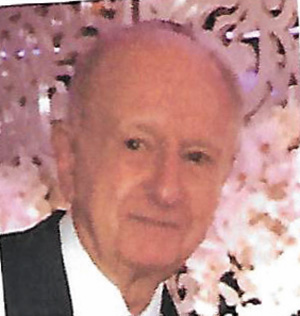
Part 8
(Continued from last week)
In the 10 years from 1914 to 1924 the world had sunk into ruins for the Germans. The powers of a stable government with the resulting feeling of security had found its end. The war ripped millions of their connections and brought them into restlessness. As the Kaiserreich collapsed their traditions were put into question. They were gripped with a panic when the value of their money disappeared and the comfort of living and hope for a successful return to the times before the war became impossible. A period of deep social revolution had begun.
Is it then a surprise, considering the anti-Semitic popularity during the war, that the Jews were automatically blamed and held responsible for the situation? By blaming the Jews, the politicians were hoping to protect their own standing and avoid taking the responsibility on their own shoulders. The floundering of the general population without any values to hold on to became the ideal breeding ground for “Jüdische Schuld” (Jewish blame). The anti-Jewish elements again aimed to set aside the parliament to suppress the parties and to centralize the will of the people into a national dictatorship. But none of the groups or organizations had the strength or the backing to carry out their program.
Both at the beginning of the war and again after the war at the start of the revolution, the German Jews had hoped that despite all the dangers that they stood before “a crowning of the emancipation of the century.” Both times they stood at the end not at an integration into society, but in isolation.
During the coming years the anti-Semites, supported by many politicians, retired military personnel and schools and labor federations used the Jews as “Blitzableiter”(lightning rods) for all troubles and economic and political inconveniences. The Jews were accused of having increased their earnings during the war, had sacked the fighting and working populace and finally had prepared the desperate people for the Revolution.
Already in 1919 the “Deutschnationalen Volkspartei”(German National Peoples party) had laid the groundwork for later anti-Semitism, although, originally without much support or success. Nevertheless, they were able to seed many other generally non-political groups and later unified them in their hate of the Jews and in their opposition against the Weimar Republic. But still they had no alternatives to offer. Every separate group felt that their way was the only way to solve all the problems confronting them, and as result it eventually led to the collapse of the movement.
Contrary to all the disorganized groupings, Hitler who was familiar with the dissatisfaction of the military as well as the economic struggles of the population, saw that a successful battle against the Weimar Republic was only possible if the people had a vision free from all wants and the building of a new and strong nation. More than the other demagogues of the time, Hitler was successful in organizing academics and the working class, entrepreneurs and laborers, officials and day-workers, Christians as well as Atheists into instrumental Juden-Hass to fight against the Republic. A Germany can only be saved, so Hitler again and again hammered into his followers, when all “un-German” elements are removed or destroyed and all material and human values, without exception, are placed at the disposal of a new nation. With a small circle of anti-Semitic, anti-Social andanti-citizen leaning people, Hitler entered politics. When the Nationalsocialisten acted, while the others only talked or dreamed, he attracted former soldiers, students and the youth of the national and anti-Semitic groups.
These unsatisfied groups wanted action, not only words. This void, Hitler’s organization NSDAP (National Socialistische Deutsche Arbeiter Partei- National Socialist German Workers Party) was able to fill with their program. Groups who in the past had totally different policies vied for inclusion thinking that thereby they would be able to promote their own policies from within. Little did they realize that Hitler would use their inclusion only to be able to later declare them as weak and indecisive and enable him to exclude them. Hitler’s “Putsch” in November 1923 was a failure, but by switching the blame to the betrayal and indecisiveness of his coworkers, he was able to create a benefit for himself. He lost no opportunity to demonstrate to the masses that he, and he alone, should be the leader in the coming fight.
In the years after the founding of the Republic, the Jews found a quiet but constant reduction in and removal from educational and political positions. For example, by 1927 only one General-Consul in foreign positions was Jewish. In medicine, particularly outside of the larger cities, many doctors found it impossible to continue with their practice or position in hospitals. There is no doubt that the actions of the anti-Semites during the 1920s brought millions of others to thoughts and methods, which they later in the 1930s acted out in atrocities and other violence against the Jews.
(To be continued next week)
By Norbert Strauss










